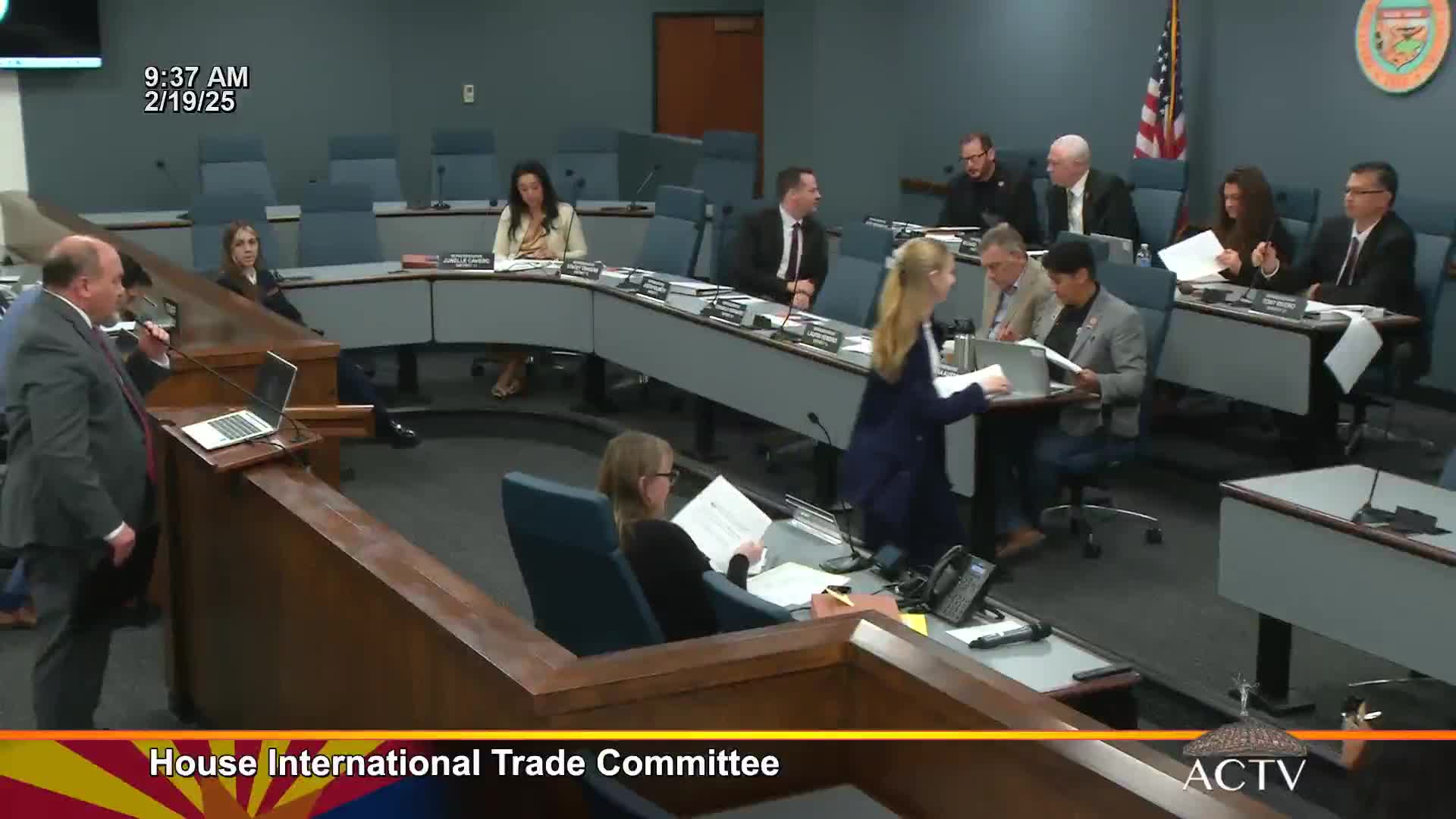Fresh Produce Association warns tariffs, supply rules could hit Nogales trade and Arizona jobs
Get AI-powered insights, summaries, and transcripts
Subscribe
Summary
Industry representatives for the fresh produce trade described how threatened tariffs, changes to USMCA provisions and a potential end to the tomato suspension agreement could disrupt the Nogales trade corridor, increase costs for producers and shoppers, and threaten jobs in Santa Cruz County and across the U.S.
Leaders of the Fresh Produce Association of the Americas told the Arizona Legislature's International Trade Committee that tariffs under current federal consideration, possible changes to USMCA and pressure to terminate a long-standing tomato suspension agreement could harm Arizona businesses and the state's produce trade infrastructure.
Lance Meyer, identified in the transcript as president of the Fresh Produce Association of the Americas, said the association was founded in Nogales in 1944 to assist businesses with cross-border issues and that the sector supports substantial economic activity in Arizona. He cited a University of Arizona economic-impact study that the association described as showing roughly $5 billion in U.S. economic output tied to the trade, about $1 billion for Arizona and almost 5,000 jobs; for Santa Cruz County the association cited roughly $726 million in output and $385 million in GDP, supporting nearly 4,000 jobs locally.
Meyer and his colleagues said Nogales is a critical processing point: on a peak day, they said, as many as 1,500 produce trucks arrive from Mexico, with roughly 40,000 pounds per truck (the presenters cited a figure that amounts to about 60,000,000 pounds per day at peak). The Mariposa Port of Entry in Nogales receives about 90% of the state's border-processed produce goods, the presenters said.
Speakers warned that federal tariff actions could immediately and materially affect cash flow for importers. "When you start doing that, a company has to add quite a bit in bonds, they have quite a bit of cash flow that they personally don't have," Meyer said, referring to a February White House announcement of a 25% tariff on goods from Mexico and Canada that had been delayed to March 4 in the administration's timeline. The presenters also cited recent steel and aluminum tariffs and a possible April 1 reciprocal tariff on countries with a value-added tax as further complicating trade planning.
Allison (Lisonbee) Moore, executive vice president at the Fresh Produce Association, outlined the tomato suspension agreement and its economic role. She said Arizona companies imported about 1,100,000,000 pounds of tomatoes (cited value about $3.3 billion) and that the suspension agreement stabilizes supply and protects a wide range of downstream jobs. "If Florida gets its way" to terminate the agreement, Moore said, it "would cause harm directly to Arizona's local and state economy," threatening jobs and relationships with Mexican growers.
Javier Badillo, managing member of Fresh International LLC and chairman of the FPAA Tomato Committee, described operational impacts for growers and importers if tariffs were applied. He said tariffs can drastically raise consumer prices and squeeze small operators' cash flow because customs collections are immediate while customer payments typically come on 30-day terms. "If you create a 25% tariff, that tariff is a pass through cost, goes right to consumer. I can easily see over the course of time the increase in price based on that tariff," Badillo said.
Speakers also asked the committee to support infrastructure projects around Nogales, including finishing a $130 million flyover (Mariposa flyover Phase 1) and a proposed Phase 2 to improve commercial connectors and frontage roads; they asked state leaders to press federal partners to staff ports of entry and to consider CBP hiring and training timelines, which they said can exceed a year for a single officer.
Committee members asked about the timing of decisions and the operational thresholds that would cause businesses to scale back or delay investment. Industry witnesses described bond increases, collateral requirements and line-of-credit pressures that make short-notice tariff policies difficult to absorb.
The association requested that state officials publicly note the potential economic impacts and communicate with federal trade negotiators and the state's congressional delegation to highlight the interests of Arizona producers, processors and port workers.
